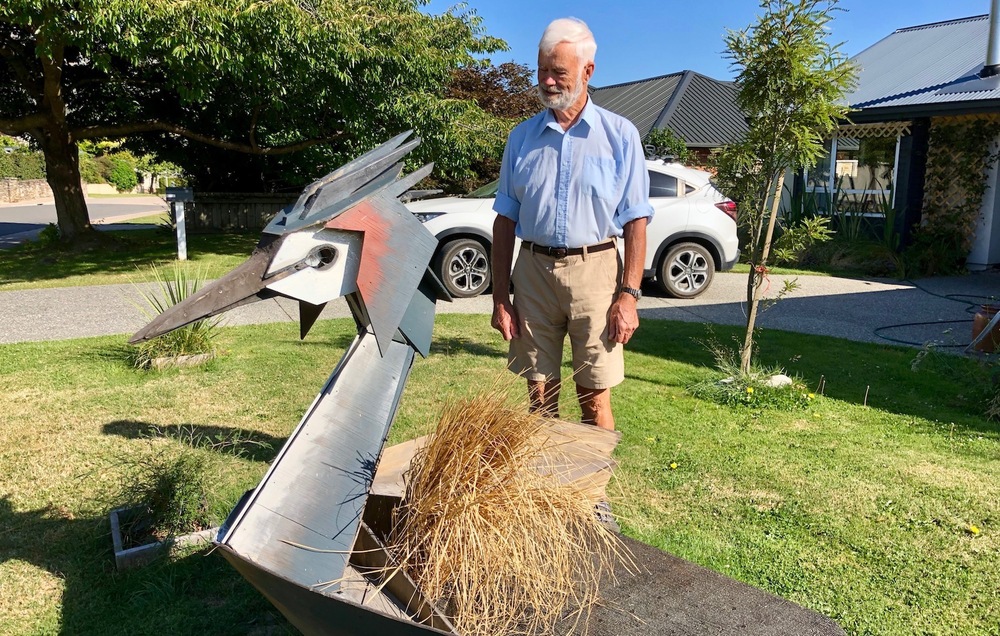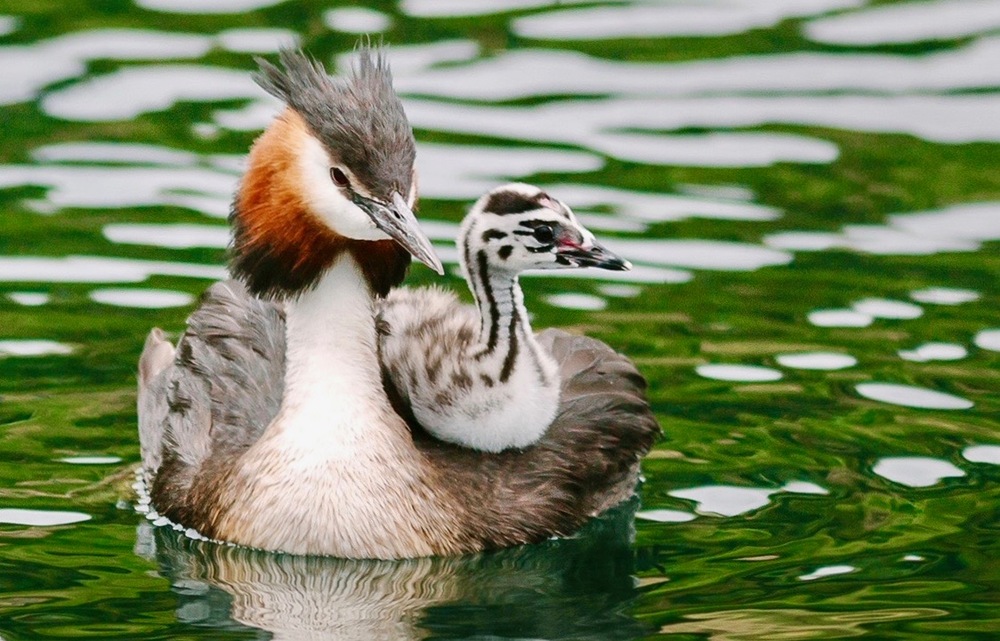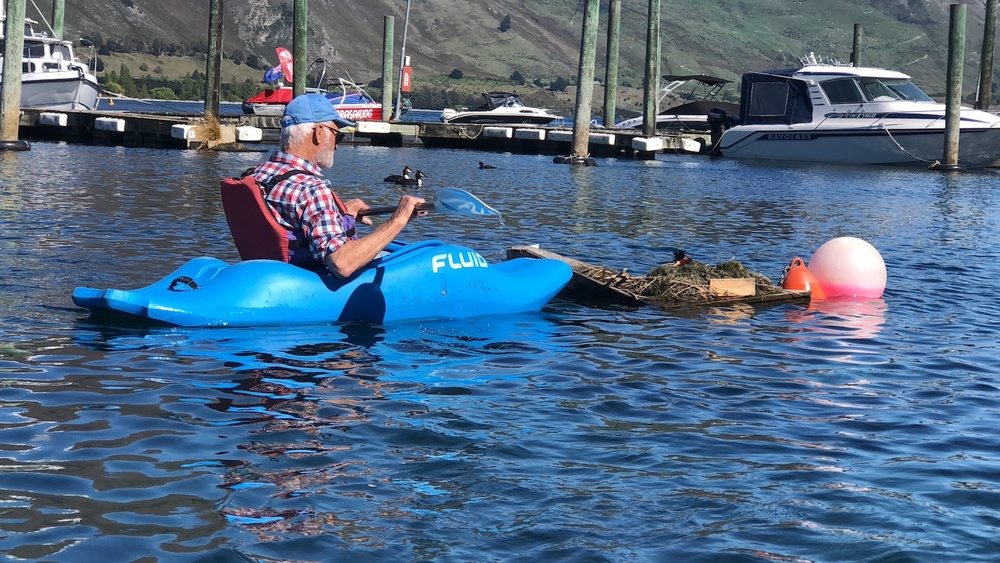‘It’s quite wonderful’ - Wānaka’s grebes win Bird of the Century
Sue Wards
15 November 2023, 4:06 PM
 A Forest & Bird representation of the new Bird of the Century, the pūteketeke Australasian crested grebe. IMAGE: Forest & Bird
A Forest & Bird representation of the new Bird of the Century, the pūteketeke Australasian crested grebe. IMAGE: Forest & BirdWānaka’s famed grebes (pūteketeke) have amazed New Zealand - and the world - by being voted Bird of the Year, and Bird of the Century in a Forest & Bird competition.
Their win was aided by intense lobbying by USA-based comedian John Oliver, who advertised for the grebe vote in Paris, Mumbai, Tokyo and London. The result was a crashed voting system and a delay in announcing a landslide victory for the grebe.
“It’s quite wonderful,” John Darby, the man who almost single-handedly revitalised the local population of grebes (and who was made an Officer of the New Zealand Order of Merit last December).
“I think it’s fantastic because the whole thing has drawn so much attention to the issues around conserving our native birds.”

John Darby with a grebe sculpture. PHOTO: Supplied
John told the Wānaka App he had gone down to the Wānaka Marina yesterday morning (Wednesday November 15) and “clearly the grebes had been celebrating all night”; they were still in high spirits and were hassling the local mallards, he said.

Despite John having fielded media enquiries (including at least one from the USA) all day, he said: “It’s all about the grebes.”
In line with his long history in wildlife conservation John took the opportunity to draw attention to the need to keep the grebes’ habitat healthy.
“It’s all about conservation,” he said.
“So much of my work has looked at the habitat - and the lack of habitat is always a major factor. If we don’t keep the lake in really good quality you’re not going to house the grebes.

A grebe with a teenager on board. PHOTO: John Darby
“We have two major contaminants in the lake - lagarosiphon and rock snot,” he said, adding this has resulted in the herbicide disquat being added to the lake regularly, over a long period of time.
John said, while he is not a freshwater expert, ‘I’m so uncomfortable with that”.
“It is a toxic chemical and there’s no baseline data so we don’t know what the impact is.”
The grebes’ nesting area near the Wānaka Marina is “a very artificial environment, but it works”.
“It mimics what it used to be like,” he said, adding that about 80 percent of Wānaka’s lakefront has been modified.
Wānaka remains the best place to see the species, John said.
He was contacted via email four or five months ago from researchers saying they were from an American TV show, asking him a series of questions about the grebe.
John said he was impressed to see how they had interpreted the facts he offered them.
“John Oliver is very passionate about New Zealand and I think there’s no doubt he will one day visit, and I hope he will visit the grebes,” John said.

John Darby at the grebes’ breeding site in Lake Wānaka. PHOTO: Supplied
“It’s really quite extraordinary and I think most Kiwis would think it was incredibly funny.
“I think it will in the long run do a lot towards funding our native bird species.”
John said in one way it was appropriate for John Oliver to weigh in on the NZ bird competition, given Walter Oliver (1883 - 1957), the author of ‘New Zealand Birds’ - our bird bible, was our most important ornithologist.
Meanwhile Wānaka’s grebes are “doing pretty well”, John said, and the breeding area is on track to becoming part of the Southern Lakes Sanctuary.






